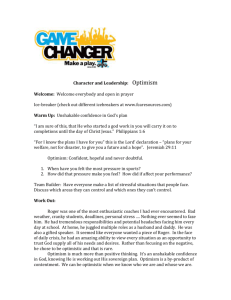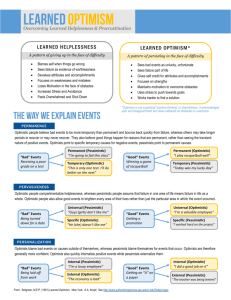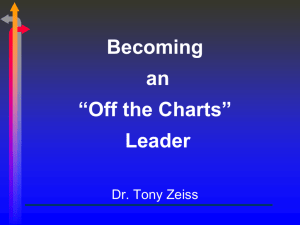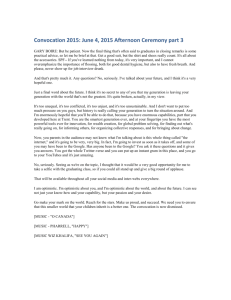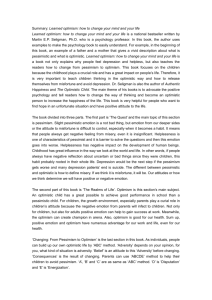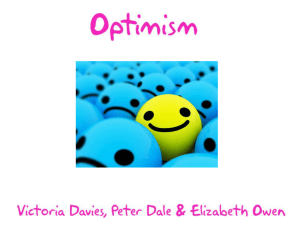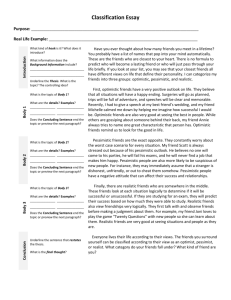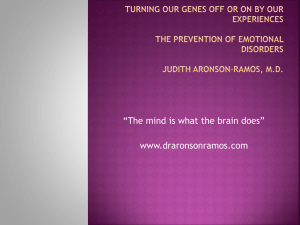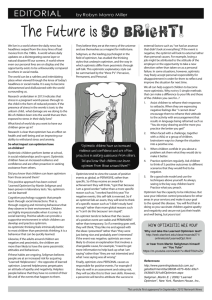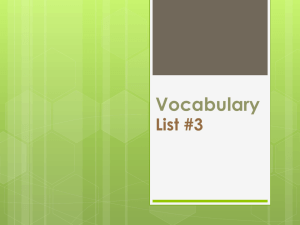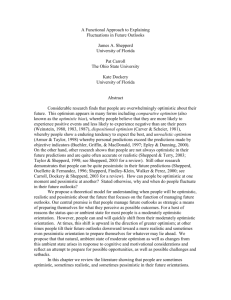05 Optimistic Kids - City of Greater Geelong
advertisement
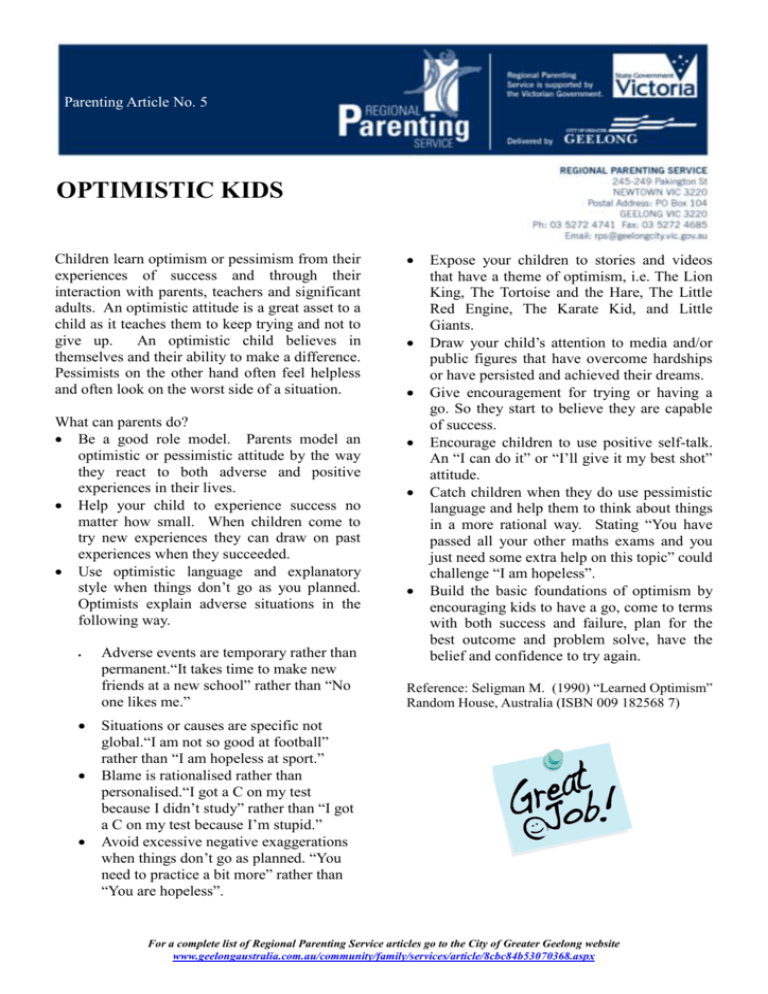
Parenting Article No. 5 OPTIMISTIC KIDS Children learn optimism or pessimism from their experiences of success and through their interaction with parents, teachers and significant adults. An optimistic attitude is a great asset to a child as it teaches them to keep trying and not to give up. An optimistic child believes in themselves and their ability to make a difference. Pessimists on the other hand often feel helpless and often look on the worst side of a situation. What can parents do? Be a good role model. Parents model an optimistic or pessimistic attitude by the way they react to both adverse and positive experiences in their lives. Help your child to experience success no matter how small. When children come to try new experiences they can draw on past experiences when they succeeded. Use optimistic language and explanatory style when things don’t go as you planned. Optimists explain adverse situations in the following way. Adverse events are temporary rather than permanent.“It takes time to make new friends at a new school” rather than “No one likes me.” Expose your children to stories and videos that have a theme of optimism, i.e. The Lion King, The Tortoise and the Hare, The Little Red Engine, The Karate Kid, and Little Giants. Draw your child’s attention to media and/or public figures that have overcome hardships or have persisted and achieved their dreams. Give encouragement for trying or having a go. So they start to believe they are capable of success. Encourage children to use positive self-talk. An “I can do it” or “I’ll give it my best shot” attitude. Catch children when they do use pessimistic language and help them to think about things in a more rational way. Stating “You have passed all your other maths exams and you just need some extra help on this topic” could challenge “I am hopeless”. Build the basic foundations of optimism by encouraging kids to have a go, come to terms with both success and failure, plan for the best outcome and problem solve, have the belief and confidence to try again. Reference: Seligman M. (1990) “Learned Optimism” Random House, Australia (ISBN 009 182568 7) Situations or causes are specific not global.“I am not so good at football” rather than “I am hopeless at sport.” Blame is rationalised rather than personalised.“I got a C on my test because I didn’t study” rather than “I got a C on my test because I’m stupid.” Avoid excessive negative exaggerations when things don’t go as planned. “You need to practice a bit more” rather than “You are hopeless”. For a complete list of Regional Parenting Service articles go to the City of Greater Geelong website www.geelongaustralia.com.au/community/family/services/article/8cbc84b53070368.aspx

